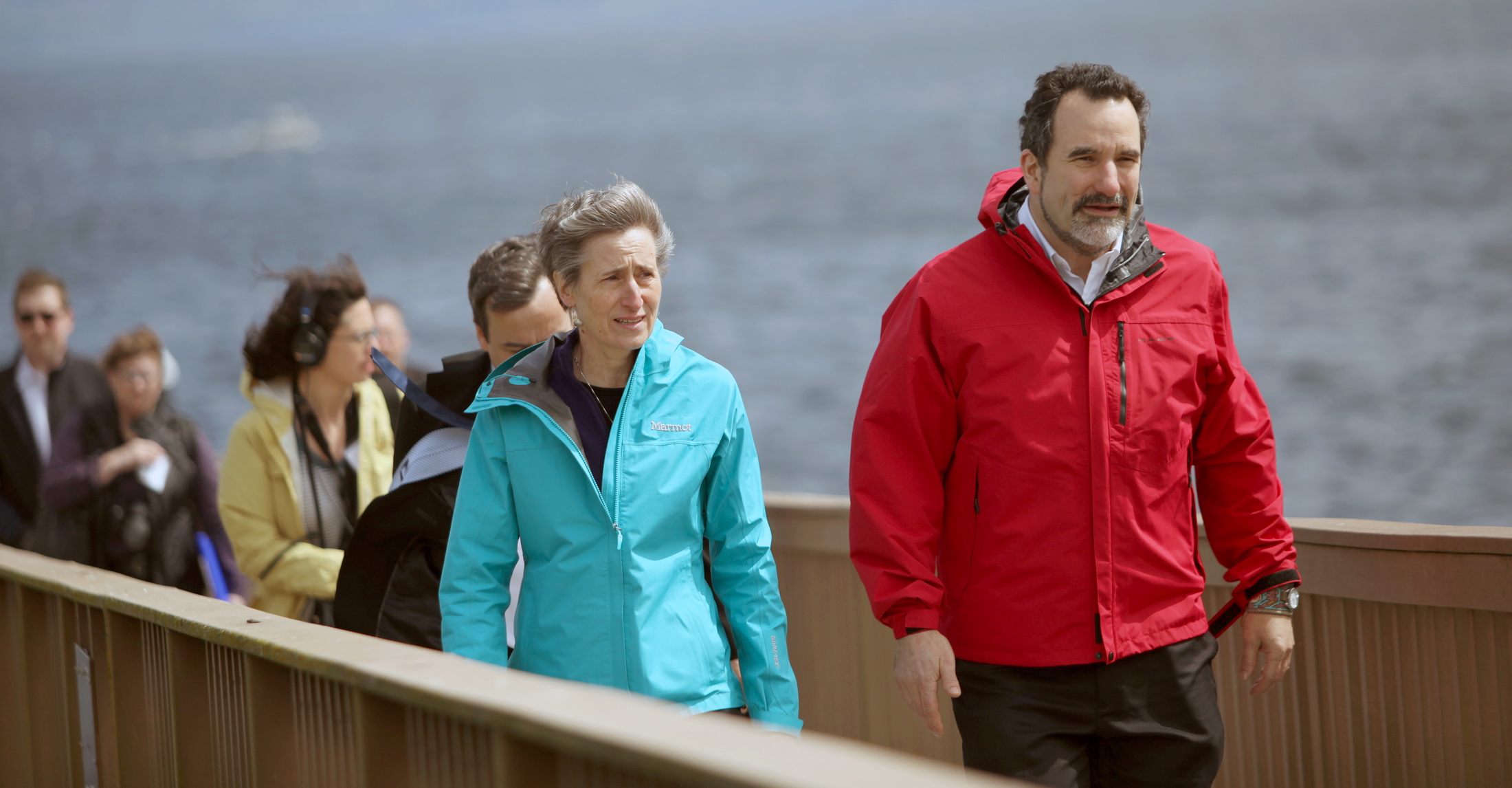Representatives of nine Washington Indian tribes told Interior Secretary Sally Jewell on Thursday that consequences of climate change are threatening their economies and cultures and that they need federal help to deal with intensifying climate-related problems.
The tribes, with low-lying reservations on Washington’s ocean coast and along Puget Sound, said rising sea levels caused by global warming, ocean acidification and more severe weather patterns are endangering the natural resources on which their cultures are based.
Fawn Sharp, president of the Quinault Indian Nation, said the magnitude of the problem has led to a kind of paralysis.
“It’s so big, we’re left wondering, ‘Where do we even begin?'” Sharp said.
Jewell, who met with the tribes at a summit organized by U.S. Rep. Derek Kilmer, D-Gig Harbor, said she is aware that some Washington tribes are at increased risk, and she promised continued support.
“You are at the pointed end of the spear with climate change,” Jewell said, “and we are determined to work with you.”
Tribal representatives at the summit expressed concern about effects of climate change and acidification on shellfish and salmon, and said rising sea levels threaten culturally important sites and the safety of tribal members.
Charles Woodruff, chairman of the Quileute Nation, said that while earthquake-generated tsunamis are his village’s main concern, more severe storms coming across the Pacific also pose a threat.
“We’re seeing a lot of weird effects, starting back in the early ’80s,” Woodruff said. Children are at risk because the school is so close to the water, he said.
“On a good day you can throw a rock from the school to the ocean,” he said.
Wednesday’s summit was organized by Kilmer, whose 6th Congressional District includes nine federally recognized tribes on the Olympic Peninsula or bordering Puget Sound – the Hoh, Lower Elwha Klallam, Makah, Quinault, Quileute, Jamestown S’Klallam, Port Gamble S’Klallam, Suquamish and Skokomish.
“We are so lucky to have Secretary Jewell,” Kilmer told about 75 people gathered for the meeting at the Suquamish Indian Reservation near Poulsbo in Kitsap County. “She gets it with regard to protecting our natural resources, and she also understands the importance of the tribes.”
As secretary of Department of the Interior, Jewell is active in tribal relations.
She not only oversees the Bureau of Indian Affairs, but she also heads the White House Council on Native American Affairs, an office established in June by President Barack Obama intended to help federal agencies work more effectively with tribes on a government-to-government basis.
Formerly the head of Seattle-based outdoor equipment company REI, Jewell took office just over one year ago.
The Puyallup and Squaxin Island tribes are not in Kilmer’s district, but representatives from the South Sound tribes also attended the summit.
The tribes’ clearest message to Jewell was that they need more money – not only for issues related to climate change, but also for education, health services, employment and economic stimulus.
Jewell made no definite promises, emphasizing the atmosphere of “constrained resources” at the federal level.
“We are at a time in history where people want to pay less in taxes and spend more,” she said.
Even so, Jewell noted that the administration’s 2015 budget request for the BIA is $2.6 billion – a $33.6 million increase over this year. The Interior Department’s overall budget for 2015 includes $612 million for programs in other bureaus in support of Native Americans and tribes.
The total request for Indian programs is $3.2 billion, an increase of $76 million from 2014.
With regard to climate change, Jewell said the Interior Department is taking every opportunity to reduce emissions.
“We really have a moral obligation to act,” she said. “We are all contributors.”
Jewell said the BIA is helping prepare climate action plans that will include climate considerations in all federal Indian programs. The agency funded 19 tribal grants related to climate change in fiscal year 2013, she said, including several for tribes at the summit.



